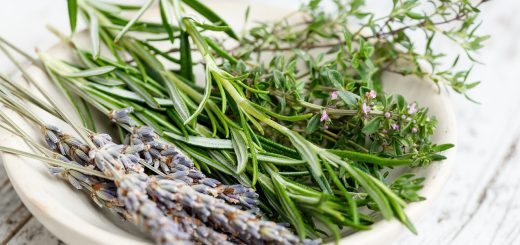Parsley in Ancient Healing and Mysticism

Hey there, amazing readers! 🖐️ Just a quick note: yes, we know there are a lot of ads here. Trust us, we get it—it’s not the prettiest look, but they help us keep this blog alive and kicking. Those pesky little ads cover the costs of all the behind-the-scenes magic, from hosting and tech stuff to creating content we hope you’ll love.
We’re committed to delivering quality posts, and your support (even just sticking around despite the ads) means everything to us. So, bear with us, and thanks for helping us keep the good vibes rolling. Now, on to the fun stuff! 😉
TRANSLATE BUTTON AT THE END OF THE ARTICLE
A Quick Overview
Parsley, a humble herb used in cuisines worldwide, has a rich history in ancient healing and mysticism.
From Ancient Egypt to medieval Europe, parsley held a significant place in traditional medicine, folklore, and mystical practices.
This article delves into the origins of parsley in ancient healing, its role in various civilizations, and the beliefs surrounding this versatile herb.
Let’s explore the fascinating world of parsley and its mystical significance throughout history.
The Origins of Parsley in Ancient Healing
Parsley (Petroselinum crispum) has been cultivated for over 2,000 years and is native to the Mediterranean region.
The ancient Greeks and Romans considered parsley a sacred herb with various medicinal properties.
Its name is derived from the Greek word "petros," meaning rock, as parsley often grew on rocky hillsides.
Ancient healers believed that parsley could aid digestion, cleanse the body, and even ward off evil spirits.
Parsley’s Role in Ancient Egyptian Medicine
In Ancient Egypt, parsley was highly regarded for its healing properties.
It was used in medicinal concoctions, believed to treat various ailments such as indigestion, kidney stones, and arthritis.
Parsley was also used in the embalming process due to its aromatic qualities.
The Egyptians valued parsley for its ability to purify the body and soul, linking it to concepts of rebirth and regeneration.
Ancient Greek Uses of Parsley for Healing
The ancient Greeks revered parsley as a symbol of victory and used it to adorn athletes and heroes.
Hippocrates, the father of medicine, prescribed parsley for its diuretic properties and as a remedy for urinary tract infections.
Greek mythology tells of parsley sprouting from the blood of the hero Archemorus, symbolizing life and vitality.
Parsley was also associated with Persephone, the goddess of spring, further highlighting its connection to rebirth and renewal.
Parsley in Roman Medicine and Folklore
The Romans valued parsley not only for its culinary uses but also for its medicinal benefits.
It was believed to purify the blood, aid in digestion, and alleviate gas and bloating.
Romans used parsley in ceremonies to honor the dead and believed it could protect against evil spirits.
In Roman folklore, it was said that only witches could grow parsley from seed, adding to its mystical reputation.
Parsley’s Significance in Medieval Herbalism
During the Middle Ages, parsley played a prominent role in herbal medicine and folklore.
It was thought to have protective powers against curses and was often planted in gardens to ward off misfortune.
Herbalists prescribed parsley for a range of ailments, from poison antidotes to kidney disorders.
Its association with death and rebirth led to its use in funeral rites and rituals.
The Mystical Symbolism of Parsley in Ancient Cultures
Parsley has deep-rooted symbolism in various ancient cultures.
In Greek and Roman mythology, parsley was associated with death and rebirth, reflecting its dual nature as both a culinary herb and a healing plant.
In Celtic folklore, parsley was believed to have protective powers and was used in rituals to ward off evil spirits.
Across different civilizations, parsley held mystical significance as a symbol of life, vitality, and protection.
Ritual Uses of Parsley in Ancient Ceremonies
Ancient cultures incorporated parsley into rituals and ceremonies for its symbolic importance.
In Ancient Greece, athletes wore parsley wreaths to symbolize victory and honor the gods.
Egyptians used parsley in religious ceremonies to purify the body and soul before entering the afterlife.
Romans scattered parsley leaves at funerals to ensure safe passage to the underworld.
The ritualistic use of parsley reflected beliefs in its protective and cleansing properties.
Healing Properties of Parsley in Traditional Medicine
Parsley is rich in vitamins, minerals, and antioxidants, making it a valuable herb in traditional medicine.
It is known for its anti-inflammatory, diuretic, and digestive properties.
Parsley tea is used to alleviate bloating, improve digestion, and detoxify the body.
The herb is also believed to support kidney health, reduce inflammation, and boost the immune system.
Its healing properties have been recognized for centuries across different cultures.
Beliefs and Superstitions Surrounding Parsley
Throughout history, parsley has been surrounded by beliefs and superstitions.
In medieval Europe, it was thought that uprooting parsley would bring bad luck or even death to the perpetrator.
Conversely, placing parsley under one’s pillow was said to bring prophetic dreams.
In some cultures, parsley was believed to protect against evil spirits, while in others, it was associated with witchcraft and dark magic.
These superstitions highlight the mystical aura that has surrounded parsley for centuries.
The Role of Parsley in Ancient Witchcraft
Parsley has long been associated with witchcraft and magical practices.
In medieval times, parsley was believed to have the power to protect against witches and demons.
It was used in spells and potions to ward off evil and bring good luck.
Parsley was also thought to enhance psychic abilities and communication with the spirit world.
Its connection to witchcraft reflects the herb’s dual nature as both a protective agent and a mystical tool.
Parsley in Astrology and Divination Practices
In astrology, parsley is associated with the planet Mercury and the element of air.
It is believed to enhance communication, mental clarity, and intuition.
Parsley leaves were used in divination practices to reveal hidden truths and insights.
The herb’s association with Mercury, the messenger of the gods, underscores its role in facilitating communication and unlocking hidden knowledge.
Parsley’s presence in astrological rituals speaks to its mystical significance in ancient practices.
Modern Applications of Ancient Parsley Healing Practices
Today, parsley continues to be valued for its healing properties and culinary uses.
Herbalists use parsley in teas, tinctures, and supplements to support digestion, kidney health, and overall well-being.
Parsley is a staple in Mediterranean cuisine, adding flavor and nutrition to dishes.
Its antioxidant-rich properties make it a popular ingredient in detoxifying juices and smoothies.
The ancient healing traditions associated with parsley have endured, offering modern practitioners a natural remedy for a range of health concerns.
Conclusion
Parsley’s journey through ancient healing and mysticism reveals a herb deeply intertwined with human beliefs, rituals, and traditions.
From its origins in Ancient Egypt to its symbolic significance in medieval herbalism, parsley has been revered for its healing properties and mystical qualities.
The herb’s role in ancient ceremonies, folklore, and magical practices showcases its enduring appeal across diverse cultures.
Today, parsley continues to be cherished for its culinary and medicinal benefits, carrying forward a legacy of healing that spans millennia.
Embrace the power of parsley and discover the ancient wisdom that this humble herb holds.

The Enlightenment Journey is a remarkable collection of writings authored by a distinguished group of experts in the fields of spirituality, new age, and esoteric knowledge.
This anthology features a diverse assembly of well-experienced authors who bring their profound insights and credible perspectives to the forefront.
Each contributor possesses a wealth of knowledge and wisdom, making them authorities in their respective domains.
Together, they offer readers a transformative journey into the realms of spiritual growth, self-discovery, and esoteric enlightenment.
The Enlightenment Journey is a testament to the collective expertise of these luminaries, providing readers with a rich tapestry of ideas and information to illuminate their spiritual path.
Our Diverse Expertise 🌟
While our primary focus is on spirituality and esotericism, we are equally passionate about exploring a wide range of other topics and niches 🌍📚. Our experienced team is dedicated to delivering high-quality, informative content across various subjects ✨.
To ensure we provide the most accurate and valuable insights, we collaborate with trusted experts in their respective domains 🧑🏫👩🏫. This allows us to offer well-rounded perspectives and knowledge to our readers.
Our blog originally focused on spirituality and metaphysics, but we’ve since expanded to cover a wide range of niches. Don’t worry—we continue to publish a lot of articles on spirituality! Frequently visit our blog to explore our diverse content and stay tuned for more insightful reads.






